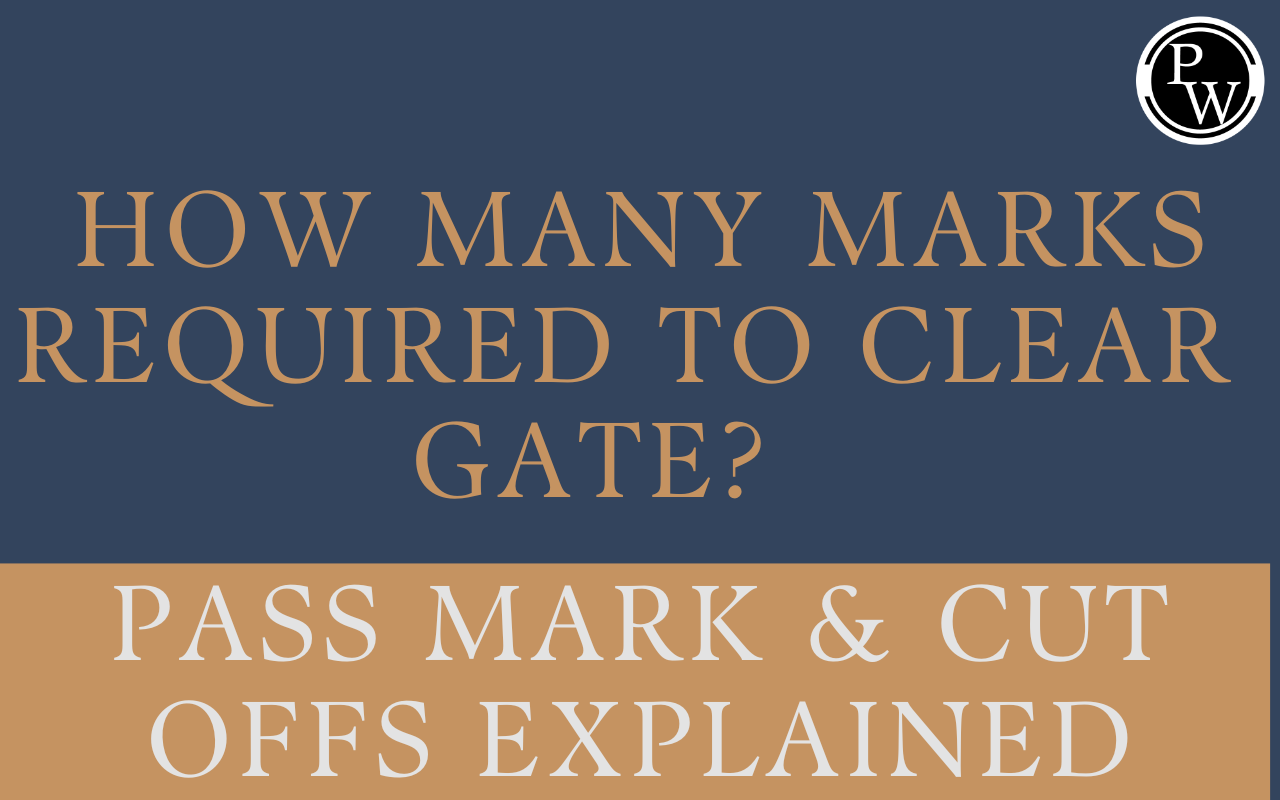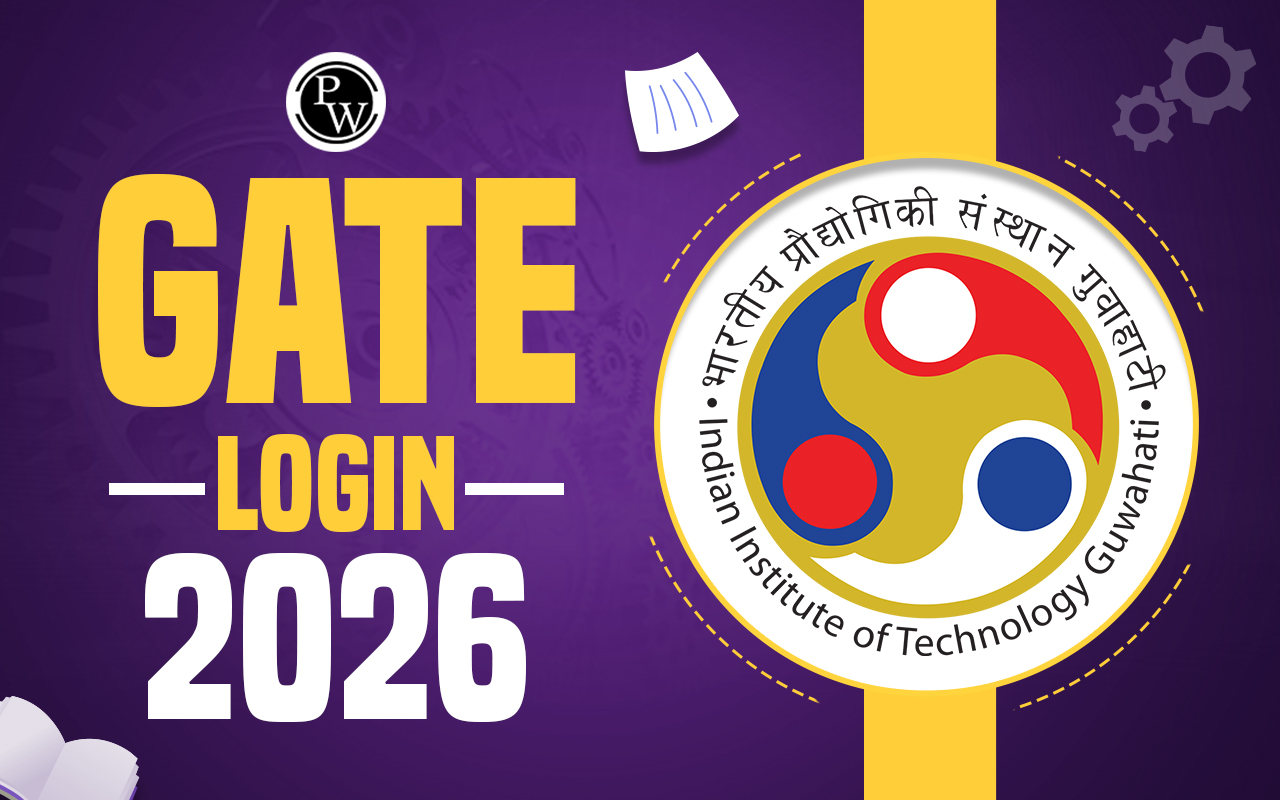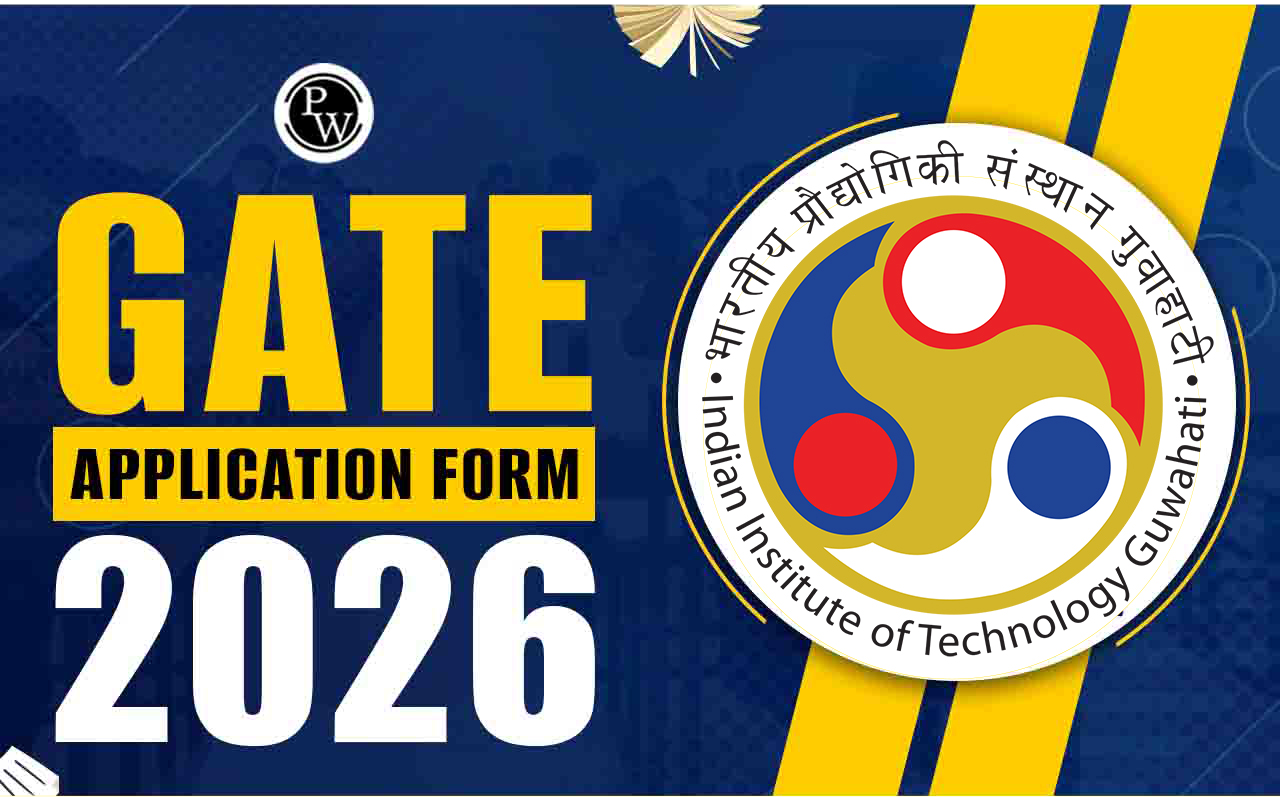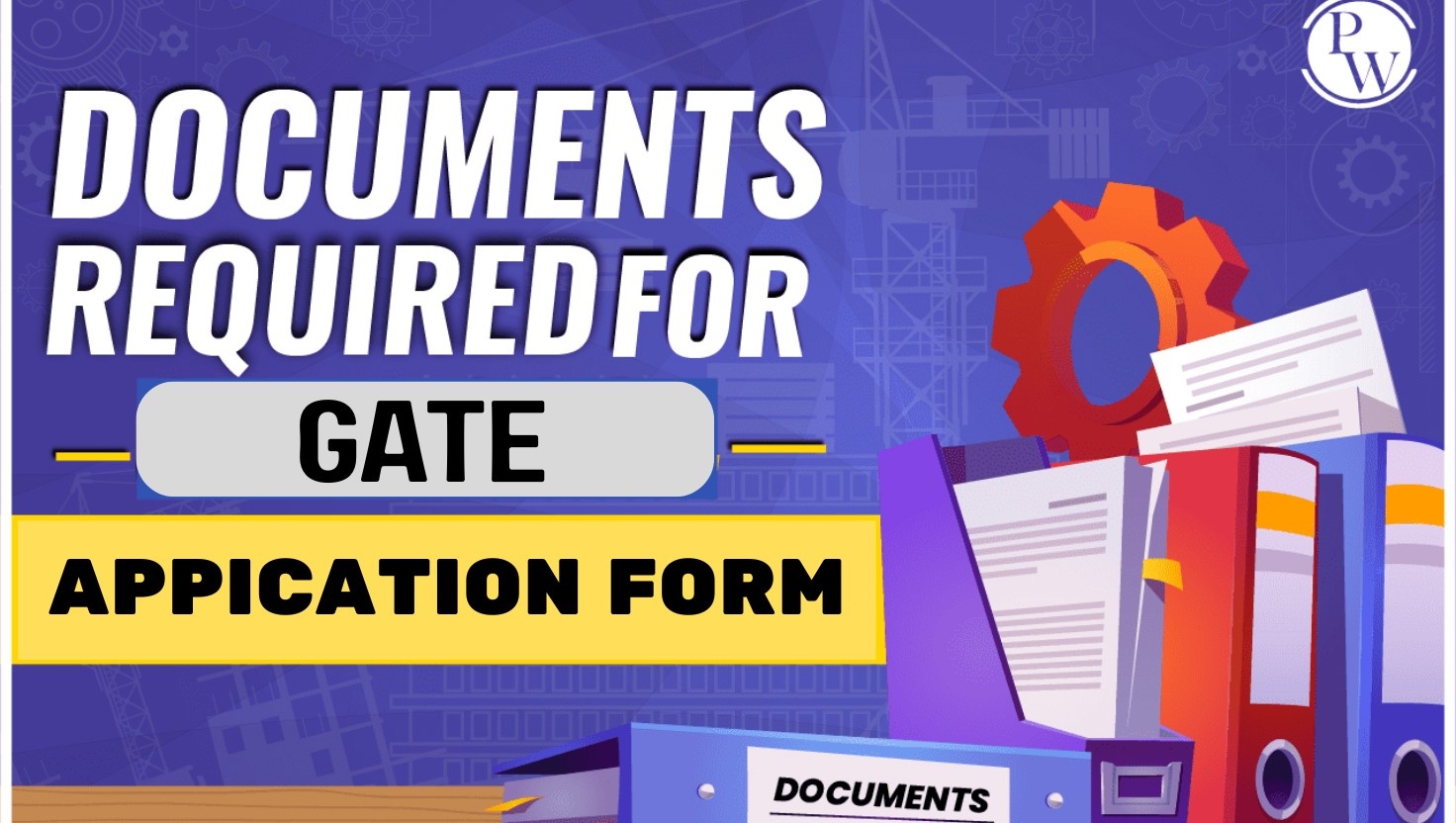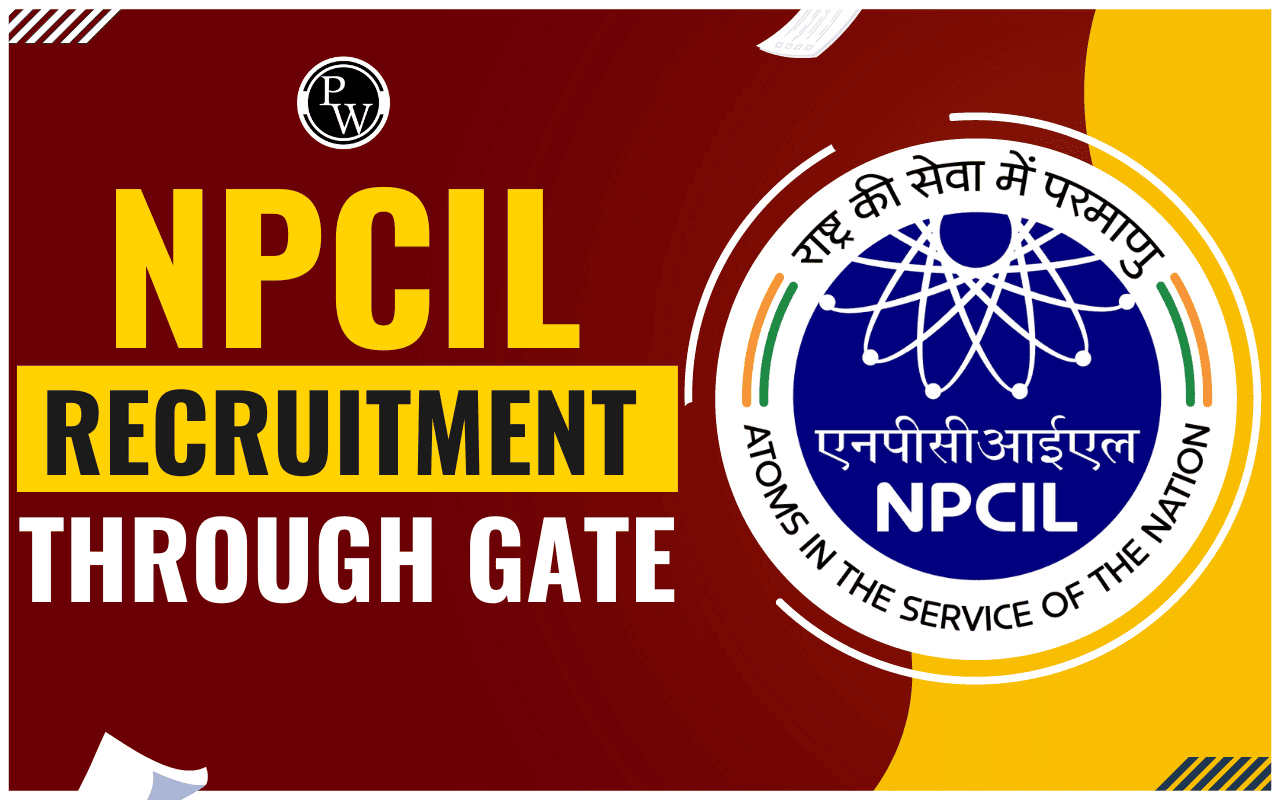

GATE Geology and Geophysics Syllabus 2026: The Graduate Aptitude Test in Engineering (GATE) is a national-level entrance test conducted annually to facilitate M.E./M.Tech. admission and PSU job opportunities to engineering graduates. The exam is conducted for around 30 different disciplines including Geology and Geophysics.
Candidates who are aiming to take the GATE 2026 examination for Geology and Geophysics discipline must understand the syllabus for this subject and start preparation accordingly. IIT Guwahati will host the GATE 2026 examination for all specializations.
The GATE Syllabus for Geology and Geophysics covers 70% of the questions from core subject topics; 15% of the questions from the general aptitude section, followed by 15% from Engineering Mathematics. Candidates are advised to thoroughly review the GATE GG Syllabus 2026 well to prepare in a systematic manner.
GATE Geology and Geophysics Syllabus 2026
The GATE Geology and Geophysics (GG) Syllabus covers a wide range of topics from General Aptitude, Engineering Mathematics and Core Subjects up to graduation level. The syllabus is divided into two main parts: Part A, which is common to all applicants, covers fundamental topics relevant to both Geology and Geophysics.
Furthermore, Part B is split into two distinct sections: Section 1, which delves into detailed Geology topics, and Section 2, which focuses on advanced Geophysics subjects. This structured approach allows applicants to tailor their preparation according to their specialization, ensuring a comprehensive understanding of the topics essential for success in the GATE 2026 exam.
| GATE Geology and Geophysics Syllabus 2026 Overview | |
| Part | Section Name |
| Part A | Common Section |
| Part B | Section 1: Geology |
| Section 2: Geophysics | |
GATE Geology and Geophysics Syllabus 2026 for General Aptitude
| GATE Geology and Geophysics Syllabus 2026 for General Aptitude | |
| Topics | Sub-Topics |
| Verbal Aptitude | Tenses, Articles, Adjectives, Prepositions, Conjunctions, Verb-Noun Agreement, and other Parts of Speech Words, Idioms, and Phrases in Context, Reading and Comprehension, and Narrative Sequencing |
| Quantitative Aptitude | Data Interpretation, Numerical Computation and Estimation, Mensuration and Geometry, and Elementary Statistics and Probability |
| Analytical Aptitude | Logic, Analogy, Numerical Relations and Reasoning, etc. |
| Spatial Aptitude | Transformation of Shapes, Paper Folding and Cutting, etc. |
GATE General Aptitude Syllabus PDF
GATE Geology and Geophysics Syllabus 2026 for Common Section
As per the official GATE Geology and Geophysics Syllabus, the common section encompasses topics such as Earth and Planetary System, Weathering and Soil Formation, Basic Structural Geology, Crystallography, Introduction to Remote Sensing, Elements of Hydrogeology, Mineral, Coal and Petroleum Resources of India, among others.
The detailed GATE GG Syllabus 2026 for the common section is outlined in the table below for aspirants convenience.
| GATE Geology and Geophysics Syllabus 2026 for Common Section |
|
GATE GG Syllabus 2026 for Geology
The GATE GG Syllabus 2026 for Geology covers a wide range of key topics essential for a thorough understanding of the core subject. These cover diverse aspects of the Earth’s structure, processes, and materials. Key topics of the GATE 2026 Geology Syllabus include Geomorphology, Structural Geology, Crystallography and Mineralogy, Geochemistry, Igneous Petrology, and more, as detailed in the table below.
| GATE GG Syllabus 2026 for Geology | |
| Topic | Subtopics |
| Geomorphology | Development and Evolution of Landforms in Continental and Oceanic Settings; Tectonic Geomorphology; Geomorphic Processes and Agents. |
| Geochemistry | Cosmic Abundance of Elements, Geochemical Evolution of the Earth, Geochemical Cycles, Isotopic Evolution of the Crust and the Mantle, Geochemistry of Water and Water-Rock Interaction |
| Structural Geology | Interpretation of Geological Maps; Primary and Secondary Structures; Folds, Faults, Joints, and Unconformities; Forces and Mechanisms of Rock Deformation. |
| Crystallography and Mineralogy | Crystal Chemistry; Classification of Minerals; Elements of Crystal Symmetry, Form, and Twinning; Crystallographic Projection; Physical and Optical Properties of Rock-Forming Minerals. |
| Paleobiology | Concepts of Ecology/Paleoecology; Diversity of Life Through Time; Mass Extinctions; Taphonomy; Taxonomy and Morphology of Invertebrates, Microfossils, Vertebrates, and Paleobotany. |
| Igneous Petrology | Classification, Forms, Textures, and Genesis of Common Igneous Rocks, Magmatic Differentiation, Phase Diagrams, Mantle Plumes, Hotspots, and Large Igneous Provinces |
| Sedimentology | Texture, Structure, and Sedimentary Processes, Petrology of Common Sedimentary Rocks, Sedimentary Facies and Environments, Provenance and Basin Analysis |
| Applied Geology | Physico-Mechanical Properties of Rocks and Soils, Rock Index Tests and Failure Criteria, Rock Mass Classifications, Geological Factors in Construction, Analysis of Slope Stability, Natural Hazards and Mitigation, Principles of Climate Change |
| Basic Principles of Remote Sensing | Energy Sources and Radiation Principles, Atmospheric Absorption, Aerial-Photo Interpretation, Multispectral Remote Sensing, Digital Processing of Satellite Images, GIS Concepts and Operations |
| Hydrogeology | Groundwater Flow and Exploration, Well Hydraulics and Water Quality |
| Metamorphic Petrology | Metamorphism of Different Rock Types; Structures and Textures of Metamorphic Rocks; Thermobarometry and Metamorphic P-T-t Paths; Physico-Chemical Conditions of Metamorphism. |
| Resource Geology | Ore Mineralogy and Ore Forming Processes, Coal and Petroleum Geology, Marine Mineral Resources, Prospecting and Exploration of Economic Mineral Deposits, Ore Dressing and Mineral Economics |
| Global Tectonics | Plate Motions and Boundaries, Supercontinent Cycles |
| Stratigraphy | Principles and Concepts of Stratigraphy and Correlation, Lithostratigraphy, Biostratigraphy, and Chronostratigraphy, Sequence Stratigraphy, Stratigraphy of India |
GATE GG Syllabus 2026 for Geophysics
The Geophysics section of the GATE GG Syllabus 2026 emphasize on important topics such as Seismic Methods, Geophysical Signal Processing, Electrical Methods, Earthquake Seismology, Geodesy, Potential and Time Varying Fields, Magnetic Methods, Electromagnetic Methods, Geophysical Inversion, among many others. Check out the important topics of the GATE 2026 Geophysics Syllabus presented in the table below.
| GATE GG Syllabus 2026 for Geophysics | |
| Topics | Sub-Topics |
| Solid-Earth Geophysics | Geothermics and Heat Flow, The Earth as a Planet; Different Motions of the Earth; Gravity Field of the Earth, Clairaut’s Theorem, Size and Shape of Earth, Paleomagnetism; Seismology and Interior of the Earth; Variation of Density, Velocity, Pressure, Temperature, Geomagnetic Field, Electrical and Magnetic Properties of the Earth. |
| Geodesy | Leveling and Surveying; Gravitational Field of the Earth; Geoid; Ellipsoid; Geodetic Reference Systems; Everest (1830) and WGS 84 (1984) Systems; GPS and DGPS, Datum |
| Potential and Time Varying Fields | Integral Equations in Potential and Time-Varying Field Theory; Scalar and Vector Potential Fields; Laplace, Maxwell, and Helmholtz Equations for Solution of Different Types of Boundary Value Problems in Cartesian, Cylindrical, and Spherical Polar Coordinates; Green’s Theorem; Image Theory. |
| Elements of Elasticity Theory | Digital Seismographs, Earthquake Statistics, Reflection and Refraction of Elastic Waves, Rotational, Dilatational, Irrational, and Equivoluminal Waves, Elements of Seismic Tomography, Earthquake Causes and Measurements, Magnitude and Intensity, Focal Mechanisms, Earthquake Quantification, Source Characteristics, Seismotectonics, and Seismic Hazards, Wave Propagation in Elastic Media, Quantifying Earthquake Source from Seismological Data, Inhomogeneous and Evanescent Waves and Bounded Waves, Elements of Elasticity Theory - Stress and Strain Tensors, Generalized Hooke’s Law, Eikonal Equation and Ray Theory |
| Magnetic Methods | Various Corrections Applied to Magnetic Data, Magnetic Anomalies Due to Geometrical and Irregular Shaped Bodies, Units of Measurement, Magnetic Susceptibility of Rocks and Measurements, Magnetometers and Magnetic Gradiometers, Upward and Downward Continuation, Preparation of Magnetic Maps, Poisson’s Relation of Gravity and Magnetic Potential Field, Derivative, Analytic Signal, and Euler Depth Solutions, Image Processing Concepts in Processing of Magnetic Anomaly Maps, Elements of Earth’s Magnetic Field, Land, Airborne and Marine Magnetic and Magnetic Gradiometer Surveys, IGRF, Reduction to Pole Transformation, Depth Rules, Interpretation of Processed Magnetic Anomaly Data, Applications of Gravity and Magnetic Methods for Mineral and Oil Exploration. |
| Radioactive Methods | Half-Life, Decay Constant, Radioactive Equilibrium, Application of Radiometric Methods for Exploration, G M Counter, Prospecting and Assaying of Mineral (Radioactive and Non-Radioactive) Deposits, Assaying and Radioactive Waste Disposal, Semiconductor Devices, Scintillation Detector |
| Geophysical Inversion | Singular Value Decomposition, Non-linear Methods including Tikhonov’s Regularization Method, Swarm Intelligence, Overdetermined, Underdetermined and Mixed Determined Inverse Problems, Statistics of Misfit and Likelihood, Quasi-linear Methods, Ill-posedness of Inverse Problems, L1, L2 and Lp Norms, Bayesian Construction of Posterior Probabilities, Basic Concepts of Forward and Inverse Problems, Condition Number, Ambiguity and Uncertainty in Geophysical Interpretation, Stability of Solutions, Artificial Neural Networks, Sparsity Promoting L1 Optimization, Genetic Algorithms, Machine Learning, Backus-Gilbert Method, Simulated Annealing |
GATE Geology and Geophysics Syllabus PDF
It is strongly advised to download the GATE Geology and Geophysics Syllabus PDF to check all the in-depth details regarding the topics from which the majority of questions are formed in the final examination.GATE Geology and Geophysics Syllabus PDF Link
GATE Geology and Geophysics Exam Pattern 2026
According to the exam pattern, the GATE GG question paper will carry a total of 100 marks, where every question will be worth 1 or 2 marks. It is important to note that every wrong answer will have a negative marking. The detailed GATE Geology & Geophysics (GG) Exam Pattern 2026 is outlined below:
| GATE Geology and Geophysics Exam Pattern 2026 | |
| Particulars | Details |
| Mode of Examination | Computer Based Test (CBT) Conducted in English at Selected Exam Centres |
| Duration | 3 Hours |
| Sections | General Aptitude (GA), Applicant's Selected Subject (Geology or Geophysics) |
| Type of Questions | (a) Multiple Choice Questions (MCQ), (b) Multiple Select Questions (MSQ) and/or, (c) Numerical Answer Type (NAT) Questions |
| Questions for Testing Abilities | (a) Recall, (b) Comprehension, (c) Application, (d) Analysis and Synthesis |
| Distribution of Marks | General Aptitude: 15 Marks, Subject Questions: 85 Marks, Total: 100 Marks |
| Marking Scheme | Questions carry 1 mark or 2 marks |
| Negative Marking | For an Incorrect Answer in MCQ: - 1/3 Mark Deduction for 1-Mark MCQ, - 2/3 Mark Deduction for 2-Mark MCQ, No Negative Marking for MSQ or NAT Questions |
| Partial Marking | No Partial Marking for MSQs |
GATE Geology and Geophysics Marking Scheme 2026
Understanding the marking scheme is important for success in the GATE Geology and Geophysics (GG) 2026 examination. This scheme shows how marks are distributed across different sections, ensuring applicants are well-prepared for the test. By comprehending the structure of marks allocated to General Aptitude and subject-specific questions, aspirants can strategically plan their preparations to maximize their scores effectively.
| GATE Geology and Geophysics Marking Scheme 2026 | |||||
| Paper Code | General Aptitude (GA) Marks | Common Section Marks | Subject Marks | Total Marks | Total Time |
| GG | 15 | 25 | 60 | 100 | 180 Minutes |
GATE Geology and Geophysics Syllabus 2026 FAQs
Q. Who will release the official GATE Geology and Geophysics Syllabus 2026?
Q. What does the GATE GG Syllabus 2026 include?
Q. How can I download the GATE Geology and Geophysics Syllabus PDF?
Q. What is the paper code for the GATE Geology and Geophysics subject?


